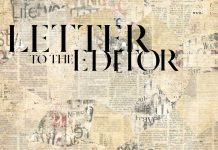John Friedmann
’s won’t let his blue eyes betray him. As he laughs and reads
and eats and thinks, his eyes flash bright and clear under bushy
eyebrows and wrinkled skin.
John Friedmann’s won’t let his blue eyes betray him. As he laughs and reads and eats and thinks, his eyes flash bright and clear under bushy eyebrows and wrinkled skin.
But as Friedmann, 91, speaks of his experience more than 65 years ago escaping a concentration camp during World War II, his eyes refuse to cloud over with terror or disbelief, no matter the horror he lived through. They remain definite, yet gentle, reflective and honest.
These days, Friedmann isn’t afraid to get out and live. He lives in San Jose and often visits his daughter, Joyce Maskell, in Morgan Hill. He is one of about 80 to 90 Holocaust survivors in the greater San Jose area. He recently passed his driving test to renew his license, and despite a few recent health problems, Friedmann is soaking up life.
“I like taking my scooter out,” he said, referring to an electric scooter that he sometimes uses for transport, including on bike trails with his daughter and her husband. He also swims during the summer and attends weekly lunches at a community center in San Jose. His most recent job, which he held into his early 80s, was for the “National Enquirer,” going store to store recording the tabloid’s stock.
It seems Friedmann was born with a love of life, a passion only strengthened as a young Jew facing the reign of Adolf Hitler. Born in Slovakia in 1913, Friedmann and his family moved to Vienna, Austria, when Friedmann was a boy. His mother was a businesswoman, and his father, an electrician, left the family when Friedmann was 13.
When he was a teenager, Friedmann and his mother moved to Voecklabruck, a small town of about 6,000 in upper Austria, where Friedmann worked as a leather maker. Although they were the only Jews in the town, Friedmann said he and his mother were well-liked and made many friends, some of whom he still talks with.
“People in a small town didn’t care that we were Jews. I was popular,” Friedmann recalled.
Shortly after Hitler invaded Austria in 1938, a Nazi officer knocked on Friedmann and his mother’s door with orders to arrest him. A gendarme – or policeman – he knew from Voecklabruck came for him, but he refused to handcuff Friedmann until the last minute.
“He gave me the opportunity to tell him I was not a Jew, but I did not say that,” Friedmann said. “I could not say that.”
Separated from his mother and wholly unsure what was happening, Friedmann was taken to the Dachau concentration camp in Germany. A few months later, he was transferred to Buchenwald, another camp also in Germany.
Desperate to free her son, Friedmann’s mother sought help from an old friend who also was a criminal police official – a distinctly separate organization from the Gestapo. The friend offered to tell the Gestapo that Friedmann was wanted on criminal charges to get him back to Austria, and it worked. Friedmann returned, first to Voecklabruck and then Vienna, where he reunited with his mother.
On the morning of Nov. 9, 1938, Friedmann awoke to orders from the police department to notify them exactly where he was. By that time, the Nazis had increased their presence and power, filling the streets of Vienna with noisy demonstrations. Friedmann decided to return to Voecklabruck, traveling via train through the night and arriving in the early morning.
Unknowingly, Friedmann escaped what many historians view as the beginning of the Holocaust: Kristallnacht, or Night of Broken Glass, in which Nazis beat, raped, murdered and arrested Jews in Germany and Austria, as well as ravaged and burned hundreds of synagogues. Towns were littered with broken glass from Jewish shop windows.
Through his time in the concentration camps and even upon realization he had narrowly escaped death, Friedmann said he was not afraid.
“When you’re young, you have a lot of energy. When you have a lot of energy, you’re not scared,” he said.
When the war ended, Friedmann joined the U.S. Armed Forces and served in Shanghai and Nanking. In 1949, he obtained a visa to the United States, traveling first to Canada where he met his wife, Alice Edelstein. The couple were married in 1950 and lived for a few months in Ohio before moving to Los Angeles, where they stayed for more than 45 years.
They moved to San Jose in 1997 to be closer to their daughter and only child. Edelstein, a survivor of concentration camps where her mother, father and brother died, passed away in 1999.
Although Friedmann now keeps himself busy, he said he strives to honor his past. Over the years, he has filled notebooks and scrapbooks with written memories, which at times spontaneously surface in his thoughts.
“When something comes to mind, I make a note, so I don’t lose it,” he said. “That way, I have it. It’s always there.”







